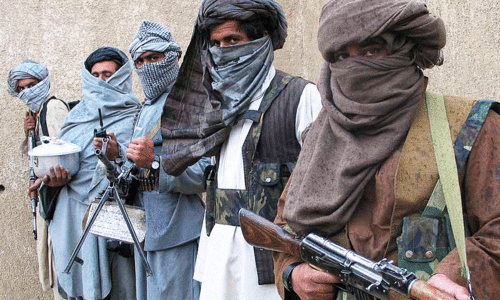Since the intervention of Nato and allied forces, countless efforts have been made to reestablish a stable Afghan state. Afghanistan has held two terms of presidential and parliamentary elections since then, however, both terms were ‘accused of being fraudulent’.
The third election is due to take place on April 5, 2014. The upcoming presidential election is symbolic for turning the page for the war-torn country, as the international community and Afghanistan itself needs a peaceful transition towards a new political era.
Elections are the mechanism through which modern representative democracy operates; it is a process in which the nation via voting system elects one particular person out of the rest of the candidates to run the affairs of the county.
Since this year’s election in Afghanistan is hoped to pave the way for a democratic transfer of power at a crucial juncture for the country, the poll would mean much more than just selecting a new president. Hence, hopeful candidates are on an excruciatingly demanding schedule, however, the voting behaviour of the people depends on various factors, two of which, the security situation and the Afghan youth, have great potential to influence the outcome.
Security – A challenge
 |
| Afghan police men arrive to secure a registration center as men line up to get their registration card on the last day of voter registration for the upcoming presidential elections outside a school in Kabul. -Photo by AP |
Despite the fact that people in different regions of the country are highly motivated to partake in the elections, the Afghan Taliban have called the process a “waste of time”, repeatedly threatening violence against the people of Afghanistan if they engaged in the selection of a new head of state. Violence, fighting and explosions taking place on almost a daily basis across the country are clear indicators of disruption in the election process.
Also, following a recent attack in the war-torn country, the Taliban stated that the attack was “a chilling reminder” to voters and foreigners of the kind of assault the Taliban are capable of mounting in the heavily-guarded Afghan capital to disrupt the election.
 |
| An Afghan election worker carries a ballot box at an election commission office in Jalalabad east of Kabul. Eight Afghan presidential candidates are campaigning for the third presidential election. -Photo by AP Photo |
Multimedia | Elections under fire
Security, therefore, remains by far the biggest threat that the nation will be faced with on Election Day. With this unyielding safety dimension, huge numbers of Afghans may just not go out to cast their votes.
Youth – A hope
 |
| Afghan youths rest on top of an old destroyed Soviet tank overlooking Kabul. -Photo by AP |
In a democratic system of government, the ultimate political power lies in the hands of the people. Afghanistan has a predominantly young population, with nearly 60 per cent of Afghans under the age of 25. This large demographic is exceedingly anxious about the future of their country.
Despite the fact that Afghanistan is a socially conservative country where often the elders have a sense of entitlement to hold power in various spheres of life, over the last 13 years the role of the Afghan youth has considerably become a key factor in determining the prospects for the country. Young people, both male and female, have become much more involved in the shaping of political trends. This can be seen in the formation of new political entities, social groups, young leaders’ fora, etc.
 |
| Afghan supporters cheer during a campaign rally at a stadium in the northwestern city of Herat. -Photo by AFP |
The Afghan youth has initiated refreshing political debates, which are visibly broader now across the country. In a stark contrast from earlier days, young people now hold informal gatherings to discuss politics, culture and a wide array of other issues.
Another recent and extremely promising scenario in Afghanistan has been of the youths raising their voices by writing for different local and international newspapers, journals and magazines. A huge number of youngsters use Facebook and Twitter as a tool to campaign for their favourite candidate and urge others to participate wholeheartedly in the upcoming elections.
 |
| A child hides under her mother's burqa as women queue to get their registration card on the last day of voter registration for the upcoming presidential elections outside a school in Kabul. -Photo by AP |
Much of the efforts to improve turnout among young voters have focused on providing volunteer activism to make it easier for their country folk to vote in larger numbers. And while the youth is progressing in large strides, it is now more crucial than ever for the candidates to fulfill the expectations of a young Afghanistan by addressing their issues.
Multimedia | Ballots not bullets
However, with such rampant uncertainty across the country it is neither an easy task to predicate the result of the election nor to guarantee how peacefully the process would be accomplished.
What is clear, although, is that a failure to conduct fair, unbiased and inclusive presidential elections will offset the little gains that have been made in the last 13 years at the cost countless lives and billions of dollars.















































